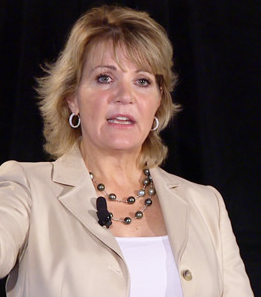Impatient, distractible, no tolerance for ambiguity, adaptable, feedback junkies, influential, powerful, optimistic, open, visual, fearless.
These are some of the words Kit Yarrow, clinical psychologist and professor at Golden Gate University, used to describe Generation Y at our March San Francisco Public Relations Round Table lunch. At 85 million strong and ranging from 15 year-old teens to 35 year-old adults, Gen Y, also known as the Millennials, is larger than the Boomer generation and will have a profound effect on the future of communications and marketing.
Yarrow, who has published a book called Gen BuY, has gathered her data from focus groups, surveys, interaction with Millennials and her own practice. She describes a generation shaped by their access to technology and the Internet, the self-esteem movement that rewarded each child regardless of achievement and youth-oriented parenting that has elevated their expectations beyond those of any generation that precedes them.
According to Yarrow, Millennials have a much higher bar for stimulation than previous generations and live their lives on display, doing the most outrageous things in an effort to win “likes” on Facebook and be talked about on Twitter. Rather than living in the moment and experiencing life genuinely, they are anticipating what their actions will look like on YouTube. Their greatest fear is of being ordinary. Thus, the common experiences that have connected older generations and resulted in a level of gratitude for the community are falling away as these teens and young adults aspire to be unique.
The result of the intense desire to live a less ordinary life is that this generation is also very open and fearless. Because their opinions have been solicited throughout their upbringing, they have enormous control and influence in the consumer marketplace. They post their reviews and share their comments with their online networks from the moment a new product or service is first introduced.
“Aspirational marketing is a dud with this group,” Yarrow asserts. They aren’t interested in hearing promises of what a product might provide. Where old school marketing has been about championing a product, effective marketing today needs to champion the consumer and engage them in the experience of using the product or service. It needs to be real, human, humble, emotional, authentic—and sharable. “Millennials believe in products as a solution to their problems,” Yarrow’s research shows.
Yarrow packed most of a book’s worth of information into her hour presentation, fascinating us with new uses for interactive technology in retail stores and examples of brand storytelling that is proving effective for this new breed of consumer. The best way to absorb it all is to invest in a copy of Gen BuY (Wiley 2009). The San Francisco Public Relations Round Table hopes to get Yarrow back soon after the completion of her next book, The Secret Psychology of Consumers.

